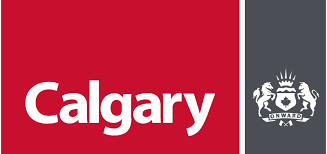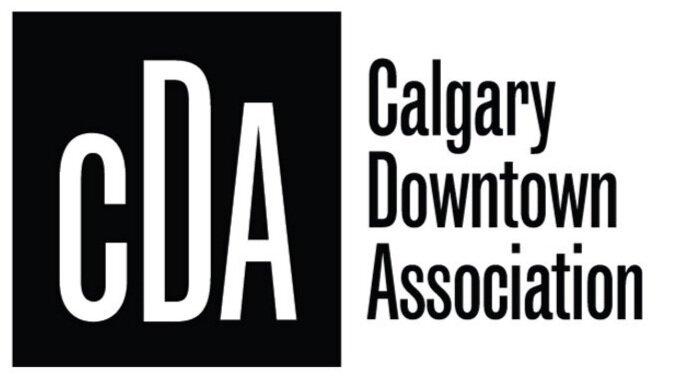Build Your Network
For people networking can either sound exciting or like the last thing you want to do. Regardless of where you fall, networking is an essential professional skill at all stages of your career.
Providing you both formal and informal access to Calgary professionals is one of the core goals of AccelerateU. Frankly, the professionals who will kick-start your career are likely not sitting in Wyckham House or at Mount Royal’s library. Instead, they are likely sitting in their office, coffee shop, or professional hubs like the Innovation Centre.
But here is a secret. There are hundreds of diverse organizations in Bow Valley Square. But remember, they are not there to meet you. In fact, more do not even know you are there. So AccelerateU is designed to create the conditions for you to professionally network, whether they are your class clients, guest speakers, or happen to work at Bow Valley Square. What you do with this opportunity is up to you.
In this section we are going to review the basics of networking. What is it? What are the benefits? How do I do it?
What is Professional Networking?
If you have ever met new people and built relationships that helped you learn something or achieve a goal—you have networked!
Networking simply means connecting with people and cultivating a mutually beneficial relationship. That time you wanted to join a club on campus, so you met students who were in the club, became friendly, and eventually joined the club? Networking. It is something that does not need to be scary, and you have most likely networked before.
What are the Benefits of Professional Networking?
As you grow as a professional, networking will play a significant role in how you find new jobs and expand your professional opportunities. The people in your network can give you career advice, insight into a new role or industry, or connect you to someone at an employer you want to work for. There are five key benefits to networking well:
Exposure to knowledge and ideas
Exposure to new opportunities
Career growth and professional development
Mentorship
Forming forever relationships
Exposure to knowledge and ideas
As you connect with new professionals, you expose yourself to innovative ideas. Your network will have experiences you have not, and they can share that information and knowledge with you to affect the way you think and approach different situations.
Exposure to new opportunities
Not only will you be exposed to new ways of thinking, but you will also be exposed to new and exciting opportunities. This is the major benefit of expanding your network. They expose you to spaces you could not get to on your own, or that you didn't even know you needed to be. The best part is that your network will make sure that the door is already open when you get there.
Career growth and professional development
You are at the very beginning of your career. As you continue to grow and find your way, you will be led by a network who has already done what you are hoping to do and can remove some of the obstacles along your journey. The advice you will receive from your network will be invaluable to your professional development.
Mentorship
Not everyone in your network will be a mentor and they do not have to be. But within your network, you need to be aware of the individuals who are particularly keen and eager to see you succeed. These are the ones who will become mentors. They are the ones who will not just guide you but will take your hand and make sure you get to where you need to go.
Forming forever relationships
The thing about building your network is that you are actually forming lifelong partnerships and possibly even friendships. The longer you stay connected to someone, the more that relationship changes and the closer your connection becomes. What starts off as a relationship based on professional value can transform into a true bond.
A Guide to Networking
It Starts with Intentional Curiosity
Curiosity can be your superpower. But it’s not just being curious, it’s being intentionally curious. intentionally curious people are humble enough to recognize they don’t know it all. When you were five years old, you were full of questions, and you didn’t care that you didn’t know everything. How could you? Great networkers have never lost that. How could you know everything even now? Humility creates a hunger that can only be fed by answers.
Intentionally curious people look at the world (and their place in it) and see big questions: How do things work together? How do these pieces connect? How can I influence things? How can I improve things? You’ll need to develop this intentional curiosity as you become the product manager of you.
Throughout your career, but especially when you are starting out, go out of your way to meet new people. Do not discount a new acquaintance because they do not have a connection to an employer or role you want. The more people you meet and share your career goals with the better.
And remember, networking is an “always on” activity, meaning you should seek out new connections and nurture your network even when you are not looking for a job. As long as you are in the workforce, you should be building professional relationships.
It’s Work
Do your homework. A good starting point is to explore community partners on LinkedIn. Who are they? What do they do? What is their background? Are there any that went to Mount Royal? Do not underestimate the power of alumni. They have been where you have been before. They are willing to support you BUT they need to be asked.
Once you have done your homework and found a few people you would like to connect with, it is time to reach out to them. If you can find an email, start there. If not, reach out to them on LinkedIn with a request to connect. Be intentional about mentioning you are studying at the Innovation Centre this semester and you’d like to learn more about them. To cut through this clutter you should consider the following tips:
Recognize their value. Show you did your homework, and you are reaching out to them because there is something special about them. Real flattery is very persuasive. For example, “You took such a unique career path by starting at X and going to company Y. I am considering a similar path and would value your advice.”
Be clear on your ask. To waffle. Be direct. For example, “I am considering a career in X and would like to have 30 minutes of your time to ask you about how you progressed in your career.” This does two things; it puts a clear constraint on the request (30 minutes), and it reinforces that the time together is about them (not you). We all like to think we are special, so reinforce how their knowledge is important and valuable to you.
Be persistent and keep asking. You are a low priority, so you may have to send a couple of reminders. Be polite and persistent and if they say no, ask them for anyone else that they could suggest. This will ensure you will have a return on your effort.
Make it easy for them. Offer to work to their schedule and meet them at the Innovation Centre, their office or anywhere they’d like to meet. Don’t be surprised if the scheduled time is a month or more out. Professionals are busy people!
It is not ALL about You. Networking is not just about meeting people who can help you. The most successful professional relationships are between two people that are interested in learning about and supporting each other. So always consider, so what is in it for them? How can you help them?
Show You Care
People care about people, who care about them. Your job is to actually show you care about developing a genuine relationship with a professional.
Build rapport: People like to know you have taken an interest in them, so do your homework. Are they alumni of your school? What do you have in common with them? Do they like sports? The arts? Building rapport is about building a minimum-level of trust and empathy to help a much deeper conversation. Part of building rapport is about being authentically interested in what they have to say. Enthusiasm can go a long way toward showing someone that you care and are interested in what they have to say.
Keep it simple: The KISS rule (keep it simple, stupid) may be easy to say, but it’s really difficult to do. You will want to talk about a lot of things, but networking should be organic. To get the most from networking, consider these three tips:
Start with broad questions and then move into more specific questions later. For example, you may want to ask them what made them decide to become a _____________.
Start with topics that the professional would find familiar. Most people like to show others how smart they are, so let the professional talk about his/her ability.
Start with open-ended questions and only use close-ended questions if needed. For example, asking a question such as, “Tell me why you became an accountant” is open-ended, allowing the respondent to talk. In contrast, a close-ended question may be, “Did you decide you wanted to be an accountant before you started university?” The risk of a close-ended question is getting a simple yes or no response with minimal value. Your goal is to stimulate their engagement and keep him/her talking.
Listen. In networking, it is common to be so focused on the process and the next question that we don’t actually listen very well. Great networking builds on what the other person says, which is impossible if you are not actually listening. So, absorb what they say. If you do, they will sense you are engaged, and the time will be much more rewarding for both of you.
Probe: Probing is intentional curiosity in real-time. When you respond to a comment by asking them a more specific question, you’re probing. For example, if they tell you that the best decision they ever made was to do a co-op degree, don’t just leave it at that. Ask them, “Why was the co-op so important to you?” Then you may ask about their specific co-op experience and the skills they developed.
Be respectful: You are not only networking; you’re also building your personal brand and network. This professional has given you their valuable time. If you find that the given time is naturally going longer, ask if they would be able to extend the time. If they have time and are enjoying the discussion, they will almost certainly say yes.
Invest in the future: Ideally, your time is not simply a one-off. A core goal of this process is for you to build your professional network and find other networking opportunities. Following your time together, ensure you send a note thanking them for their time. Personalizing the note by showing some key themes they highlighted shows your engagement and reinforces the value of the time they spent with you. In your note, ask if they’d be open to keeping in touch so you can get in touch with any additional questions.
Networking Questions
Think of this like a shopping list of questions; you’ll never get the opportunity to ask maybe three of four questions in 30 minutes so decide which questions are most important for you and are aligned to the expertise of a professional.
When you were at my stage, how much planning did you do for your career/life?
How does your career relate to your formal education?
Is your formal education essential to your career?
What courses at school best prepared you for your career?
If you could go back to school and start all over again, would you do anything differently?
How important are grades for getting into your field?
What are the best university/college programs in your field?
Did you do a co-op or internship in college/university? Would you recommend this? Why?
Did you work part-time when you went to school? Would you recommend this? Why?
Are there specific extracurricular activities that might help me prepare for a career in this area?







